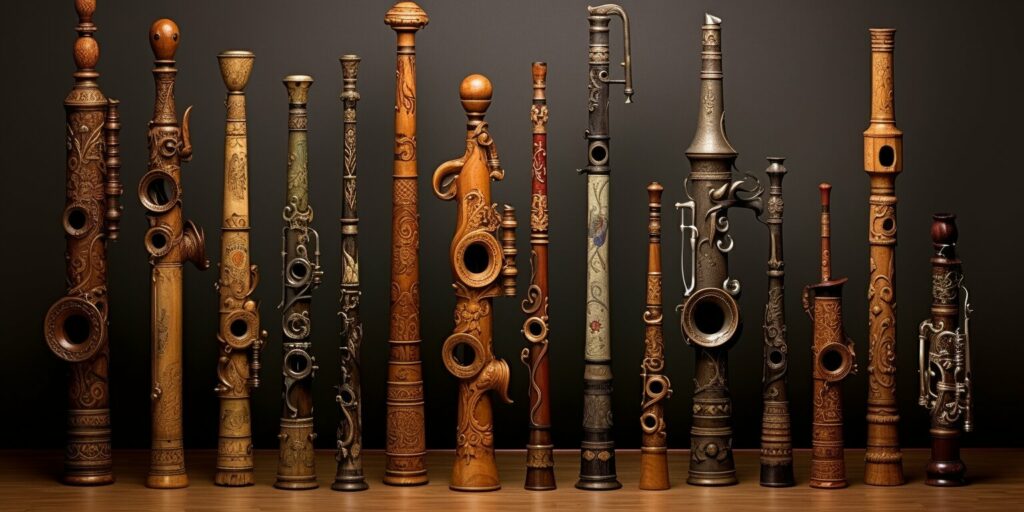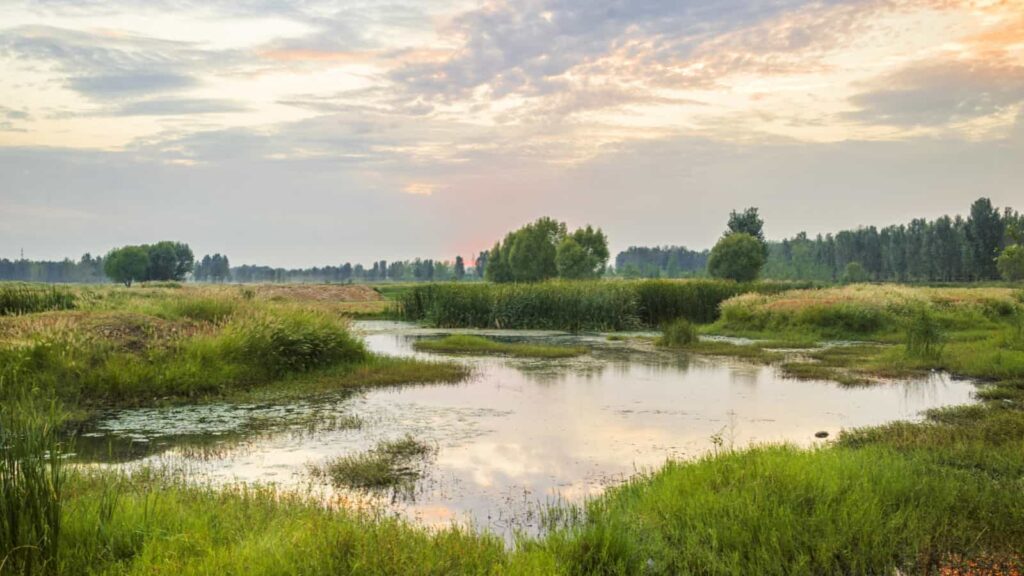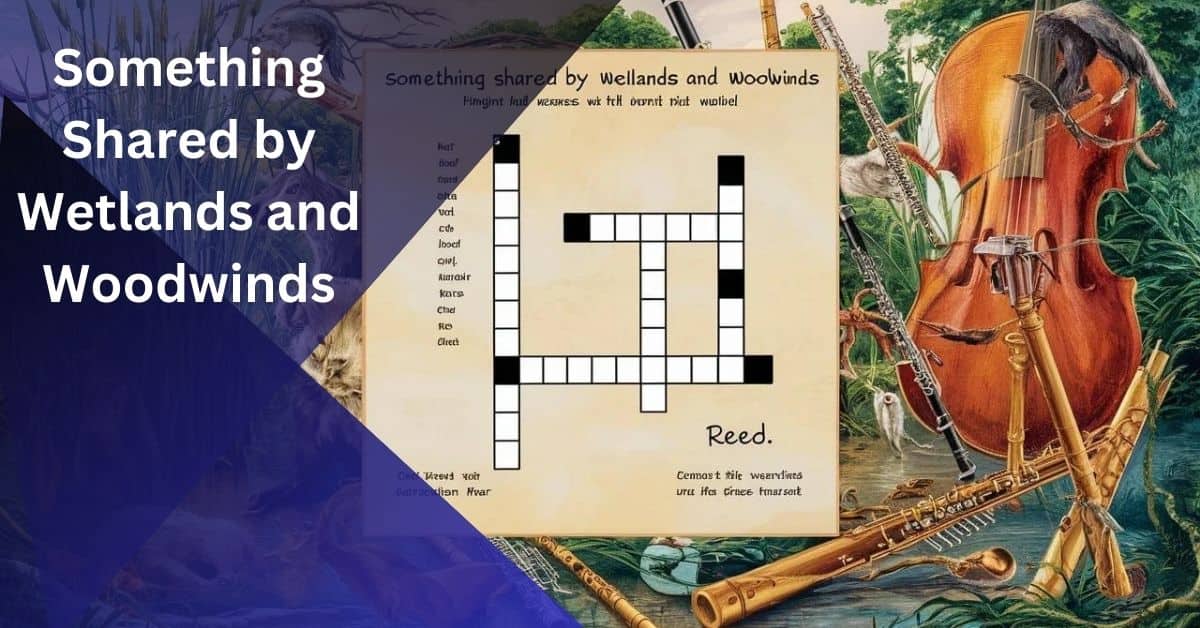Crossword puzzles often challenge our knowledge with clues that combine unexpected connections. One such clue is “Something shared by wetlands and woodwinds”, which recently appeared in The New York Times quick crossword. This article explores the possible answer and delves into the meaning behind the clue.
Understanding the Clue:
The clue “Something shared by wetlands and woodwinds” seems to bridge two distinct areas-nature and music. Wetlands are ecosystems filled with water, while woodwinds are a category of musical instruments. The connection may not be immediately obvious, but let’s dig deeper to find the answer.
Possible Answer – Reed!
After careful analysis, the possible solution to the crossword clue “Something shared by wetlands and woodwinds” is reed. Reeds are vital in both contexts:
- Wetlands: A reed is a tall, slender plant that grows in marshy areas or wetlands. These plants are a common sight in such environments, contributing to the ecosystem.
- Woodwinds: In the realm of music, a reed is a thin piece of material used to produce sound in woodwind instruments like the clarinet, oboe, and saxophone. It vibrates as air passes through, creating musical notes.
1. The Role of Reeds in Wetlands:
In wetlands, reeds play a crucial ecological role. These plants can help filter water, prevent erosion, and provide habitats for wildlife. Wetlands themselves are biodiversity hotspots, home to species ranging from amphibians and fish to birds and mammals. Reeds also stabilize the soil and offer shelter to small creatures, contributing to the health of the ecosystem.
2. The Importance of Reeds in Woodwind Instruments:

In woodwind instruments, reeds are key to sound production. Instruments like the saxophone, oboe, and clarinet rely on a reed to vibrate when the musician blows air through it. This vibration creates the unique tones and timbres characteristic of woodwind instruments.
Why the Clue is Clever?
The crossword clue “Something shared by wetlands and woodwinds” is particularly clever because it ties together two seemingly unrelated subjects. Wetlands and woodwinds belong to different worlds-nature and music-but the reed provides a point of connection. This type of clue reflects the creativity and depth that crossword puzzles often demand from solvers.
Other Possible Solutions?
While reed is the most fitting answer to the clue “Something shared by wetlands and woodwinds,” it’s worth considering if any other solutions could fit. However, after reviewing the definitions and context, reed seems to be the most logical and widely accepted answer.
Why Reeds Matter in Both Contexts?
1. Environmental Importance of Reeds in Wetlands:
Reeds in wetlands not only enhance the ecosystem but also serve practical purposes. They prevent flooding by absorbing excess water, improve water quality by acting as natural filters, and provide a habitat for various species.
In a rapidly changing environment, reeds are valuable for preserving biodiversity and maintaining healthy wetland ecosystems.
2. Musical Impact of Reeds in Woodwinds:
For musicians, the reed is an essential component of woodwind instruments. The quality and craftsmanship of a reed can greatly affect the instrument’s sound. Musicians often spend time selecting the perfect reed, as it determines the tone, clarity, and overall performance of the instrument.
Historical and Cultural Significance of Reeds:
Reeds have a long history of use in various cultures, both in the natural environment and in musical contexts. In ancient civilizations, reeds were essential for constructing tools and structures. For example, ancient Egyptians utilized reeds to make paper, known as papyrus, which was a significant development in writing and record-keeping.
Similarly, in traditional cultures around the world, reeds were used in the creation of mats, baskets, and even early musical instruments. This historical use highlights the versatility and importance of reeds across different eras and regions.
Ecological Impact of Reed Degradation:
While reeds are vital to wetland ecosystems, their degradation can have significant ecological consequences. Pollution, climate change, and human activities such as drainage and land reclamation can lead to the loss of reed beds. This degradation affects water quality, as reeds help filter pollutants and excess nutrients.
Furthermore, the loss of reeds can disrupt habitats for numerous species, leading to decreased biodiversity. Conservation efforts are crucial to protect these habitats and ensure the continued health of wetlands and their associated wildlife.
Innovations in Reed Technology for Woodwind Instruments:
The technology and craftsmanship of reeds for woodwind instruments have evolved significantly over time. Modern woodwind players often use synthetic reeds, which offer consistency and durability compared to traditional cane reeds. These innovations address issues such as reed warping and changes in humidity that can affect performance.

Additionally, advances in material science have led to the development of reeds that mimic the characteristics of natural reeds but with enhanced stability and longevity. These technological advancements contribute to better performance and easier maintenance for musicians.
The Connection Between Reed Cultivation and Environmental Management:
The cultivation of reeds for environmental management and restoration projects is becoming increasingly important. For instance, reed beds are deliberately planted in certain areas to enhance water purification processes and stabilize soil.
These managed reed beds play a role in reducing pollution and controlling floodwaters. By understanding and leveraging the natural benefits of reeds, environmental engineers and conservationists can develop effective strategies for managing and rehabilitating wetland areas.
This integration of reed cultivation into environmental management practices underscores the importance of reeds in sustaining both ecological balance and human interests.
The Role of Reeds in Wetland Carbon Sequestration:
Reeds play a significant role in carbon sequestration within wetland ecosystems. Wetlands are known for their ability to store carbon dioxide, a crucial function in mitigating climate change.
Reeds contribute to this process by absorbing carbon dioxide from the atmosphere during photosynthesis and storing it in their biomass and in the sediment beneath them.
When reeds die and decompose, the carbon is trapped in the soil, preventing it from being released back into the atmosphere. This carbon storage capability of reeds makes wetlands vital in global efforts to combat climate change and underscores their environmental importance.
The Economic Value of Reeds:
Reeds have considerable economic value beyond their ecological and musical roles. In many regions, reeds are harvested for various commercial purposes. In agriculture, reeds are used for making thatch roofing, which is a traditional and cost-effective building material. In the craft industry, reeds are woven into baskets, mats, and other artisanal products.
Additionally, reeds are utilized in water filtration systems due to their natural absorbent properties. The economic activities surrounding reeds provide livelihoods for communities and contribute to local economies, highlighting the practical benefits of these versatile plants.
The Impact of Climate Change on Reed Ecosystems:
Climate change poses significant challenges to reed ecosystems. Rising temperatures and shifting precipitation patterns can alter the growth and distribution of reeds in wetlands.

For example, increased temperatures may lead to more frequent droughts, which can reduce the extent of reed beds and affect their ability to provide habitat and ecological services. Additionally, changes in water levels can impact the health of reeds and the overall functionality of wetlands.
As climate change progresses, understanding how reeds and wetland ecosystems adapt will be crucial for developing effective conservation strategies and ensuring the resilience of these vital environments.
The Cultural Significance of Reed Instruments Worldwide:
Woodwind instruments made from reeds have cultural significance across various societies. In many traditional music forms, reed instruments hold a place of honor.
For example, the oboe is a central instrument in classical orchestras, while the bamboo reed instruments like the Chinese dizi and the Indian shehnai are integral to Asian music traditions.
Each culture has developed its unique approach to crafting and playing reed instruments, reflecting its musical heritage and artistic expression. The cultural diversity of reed instruments highlights their universal appeal and the deep connection between music, tradition, and community identity.
FAQs:
1. What Is The Answer To The Crossword Clue “Something Shared By Wetlands And Woodwinds”?
The answer is reed.
2. How Do Reeds Function In Wetlands?
Reeds help filter water, prevent erosion, and provide habitats for wildlife in wetlands.
3. What Role Do Reeds Play In Woodwind Instruments?
Reeds vibrate when air passes through them, producing sound in woodwind instruments like the clarinet and saxophone.
4. Why Is The Crossword Clue “Something Shared By Wetlands And Woodwinds” Clever?
It connects two seemingly unrelated areas-nature and music-through the shared element of reed.
5. Are There Any Other Possible Answers To The Clue?
While reed is the most suitable answer, the clue could potentially have other creative interpretations, though reed is the most widely accepted.
6. What Are The Benefits Of Reeds In The Environment?
Reeds help maintain water quality, support biodiversity, and prevent soil erosion in wetlands.
Conclusion
The crossword puzzle clue “Something shared by wetlands and woodwinds” has a fascinating answer: reed. Whether in the lush environment of wetlands or the melodic world of woodwind instruments, reeds play a pivotal role. In wetlands, they support ecosystems, while in woodwinds, they create beautiful music.
By drawing a connection between nature and music, this clue offers a moment of realization for crossword enthusiasts. It reminds us that even in puzzles, seemingly unrelated topics can share something in common.


